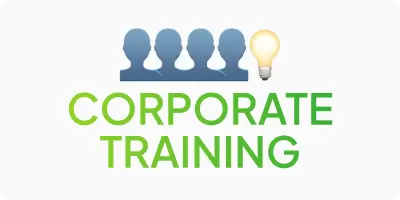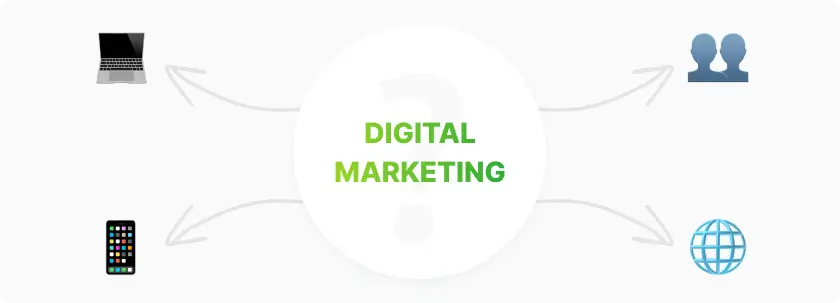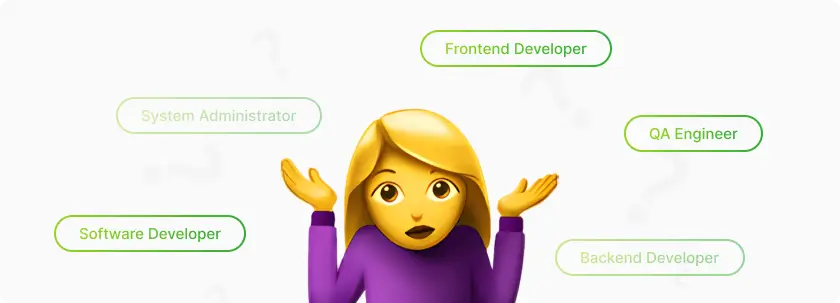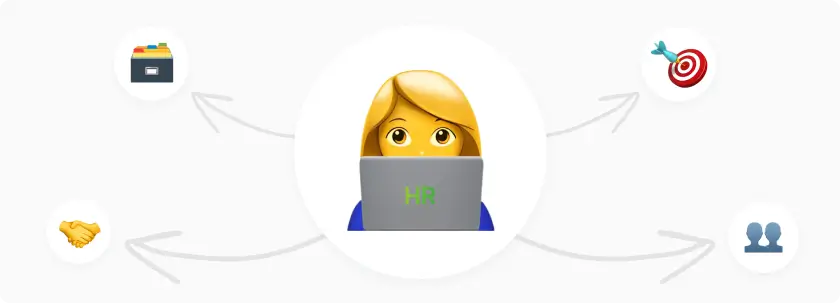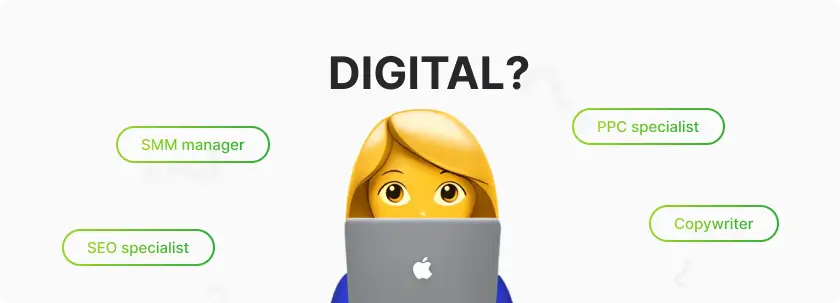
In today’s digital world, there are more and more professions related to the Internet and digital marketing. These professions are aimed at promoting brands, products, and services online. Which of these professions is right for you? Let’s take a look at the main areas of digital professions that are the most popular and in-demand in the labor market, but first, let’s define digital marketing opportunities and why it is needed.
Why do you need digital marketing?
There are many factors that go into a good marketing strategy, here are a few of them:
- Audience reach: Digital marketing allows companies to reach audiences all over the world, as product promotion is realized via the Internet.
- Targeting: With digital marketing, you can target a specific audience that will be most interested in your product or service. This allows you to significantly increase conversion with less investment.
- User interaction: With the help of social media, you can communicate with customers, answer their questions, get feedback, and improve your marketing strategies.
- Content marketing: Unlike traditional marketing, digital marketing allows you to create and distribute a large amount of useful content and help your potential customers solve their problems.
- Brand building: By advertising on social media, creating quality content, and participating in discussions, you can build a strong reputation for your brand and inspire more trust among users.
Digital marketing is becoming increasingly popular precisely because you interact directly with customers, build a reputation, and get feedback to improve your marketing strategies. Such types of marketing as SEO, PPC, SMM have already replaced traditional types of marketing and show much better results.
Types of digital marketing jobs
Internet marketer
An online marketer is responsible for developing and implementing marketing strategies in the online environment. They analyze the market, identify the target audience, create advertising campaigns, and evaluate their effectiveness.
Main tasks
- Development of marketing strategies.
- Market and competitor analysis.
- Planning and launching advertising campaigns.
- Evaluating the effectiveness of marketing strategies.
- Analytics and reporting.
Required skills
- Knowledge of Internet marketing tools (SEO, SMM, contextual advertising).
- Analytical thinking.
- Ability to work with analytical tools (e.g., Google Analytics).
- Creativity and ability to generate ideas.
SEO specialist
An SEO specialist (Search Engine Optimization) is engaged in optimizing websites for search engines. Its main goal is to increase the visibility of the site in search results and increase organic traffic.
Main tasks
- Conducting a website audit.
- Development and implementation of an SEO strategy.
- Optimization of content and technical aspects of the site.
- Building backlinks (link building).
- Analysis and monitoring of website positions.
Required skills
- Knowledge of the principles of search engines.
- Knowledge of SEO tools (Ahrefs, SEMrush, Screaming Frog).
- Ability to analyze and interpret data.
- Basic knowledge of HTML and CSS.
Web copywriter
A web copywriter writes texts for websites, blogs, social media, and advertising campaigns. Their task is to create content that attracts attention, informs, and motivates action. Often, copywriters work together with SEO specialists, because writing texts for websites also involves technical setup and the use of keywords.
Main tasks
- Writing texts for websites.
- Creating content for blogs and social networks.
- Development of advertising texts for campaigns.
- Researching and analyzing topics for articles and texts.
Required skills
- High level of literacy and language skills.
- Creativity and ability to generate ideas.
- Understanding of SEO copywriting principles.
- Ability to work in a team and meet deadlines.
Web designer
A web designer creates the visual part of websites. They develop layouts, graphic elements, and interfaces that ensure usability and aesthetic appeal of the website.
Main tasks
- Designing websites and mobile applications.
- Creating layouts and graphic elements.
- Work with interfaces and UX/UI design.
- Collaboration with developers and copywriters.
Required skills
- Proficiency in graphic editors (Adobe Photoshop, Sketch, Figma).
- Knowledge of UX/UI design principles.
- Creativity and sense of style.
- Ability to work with prototypes.
Targetologist
A director is responsible for setting up and optimizing contextual advertising in search engines. Their task is to ensure efficient use of the advertising budget and maximum conversion.
Main tasks
- Setting up advertising campaigns in Google Ads.
- Optimization of keywords and ads.
- Monitoring and analyzing the effectiveness of campaigns.
- Developing strategies to reduce cost per click and increase conversions.
Required skills
- Knowledge of contextual advertising principles.
- Ability to work with Google Ads and Google Analytics tools.
- Analytical thinking.
- Ability to work with large amounts of data.
SMM specialist
An SMM specialist (Social Media Marketing) is engaged in brand promotion on social media. Their task is to create content that engages the audience, increases brand awareness and stimulates interaction.
Main tasks
- Development of an SMM strategy.
- Creating and publishing content on social media.
- Monitoring of activity and interaction with subscribers.
- Analyzing the effectiveness of SMM campaigns.
Required skills
- Knowledge of the principles of social media.
- Creativity and ability to generate content ideas.
- Ability to analyze and interpret data.
- Excellent communication skills.
What is the difference between IT and digital professions?

IT professions are often used instead of digital and vice versa. These definitions are interchangeable and are related to the Internet. But there are still some differences.
- IT professions are focused on technical support and development of information systems, software, and databases. While digital specialists are responsible for marketing, design, data analysis, and user experience.
- IT specialists are tasked with ensuring the reliability and security of information systems and the development of new technologies. Digital specialists are responsible for attracting and retaining customers, increasing brand awareness, and optimizing marketing strategies.
In general, both groups of specialists work in the Internet sphere, but are responsible for different tasks. IT specialists develop and support technological solutions, while digital marketers promote these products or services.
How to get a digital profession?
- Assess your preferences. Learn more about each digital field and determine which one you like best.
- Analyze whether you have the appropriate soft and hard skills for this profession.
- Take online courses, webinars, and internships in your chosen field. This will help you learn more information, gain practical skills, and determine if this option is right for you.
- Create the right resume and cover letter to stand out from other candidates.
- Once you get the job you want, develop your skills, take advanced training courses, and grow your career in IT and digital, as these are the most promising areas in the 21st century.
Conclusion
Digital specialists are professionals responsible for online marketing, design, and customer acquisition. They work closely with users and build marketing strategies to build a brand and promote products/services. The main areas of digital specialists: SEO, PPC, SMM, web design, copywriting. If you want to get a profession in digital, you need to have the appropriate skills, soft skills, and analytical mindset, as well as create an appropriate resume and cover letter. Find detailed information about each profession in digital and choose the one that suits you best.











